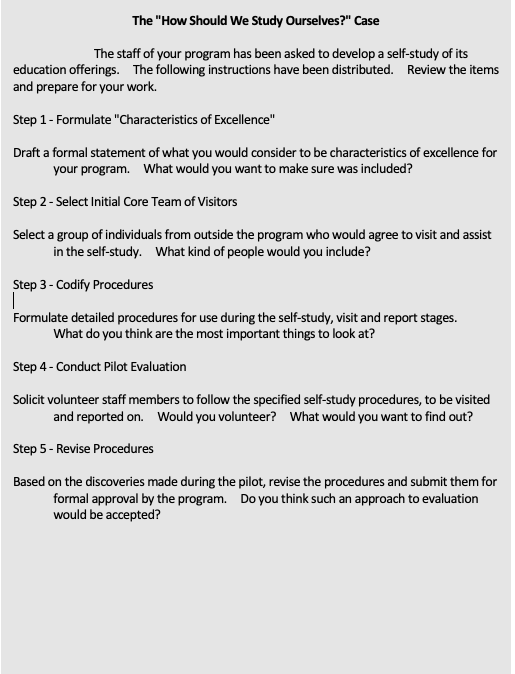DATE: December 1, 1997
TO: All Interested
FROM: John Garvey
RE: Gee Follow-up, Part 2
__________________________________________________________________________
I have now sent out my memo on Jim Gee’s talk and have started to get some responses. Although some of you have already responded to that memo and I will not impose on you to do so again, I do want to stretch my thinking a little further and to invite your reactions.
In a conversation with Kate last week, I mentioned that I thought there were some analogous implications for our work with program directors and teachers. For example, as I receive responses to my memo, it seems pretty important for me to remember that it’s at least as important for me to understand the respondents as to make sure that they have understood me.
Let me play out the analogies a bit by taking up Gee’s learning principles again.
0 A low affective filter: While we have made numerous efforts to develop productive and trusting relationships with directors and teachers, it does not seem to me that they are consistently at the level they need to be. In part, this is the result of the imprecisely defined nature of the relationship–are we colleagues or overseers. However, I think it is also the consequence of our failure to clearly define, even for ourselves, the totality of what we consider to be “good practice.” Our efforts to focus, over the years, on curriculum development (contextualized learning, inter-disciplinary themes and, more recently, content-based curriculum) or teaching practices (small group work, inquiry projects, the use of full-length books) have sometimes resulted in programs responding to the latest priority but failing to integrate whatever wisdom that priority reflected into a larger, coherent understanding. Some folks, undoubtedly, think that they have done everything we asked and are genuinely puzzled by our apparent dissatisfaction with their current work.
1 Situated practice: In spite of a number of half-starts, we have not quite decided what it is we want to accomplish and there is still a good deal of confusion about what it is programs should be trying to do. This is probably the most extreme in BEGIN where the tension between “education” and “work” is ever-present but I think it also is evident in the literacy/GED programs where tendencies to help students “accomplish their own goals” or “become empowered” co-exist with goals associated with academic development (such as getting a GED). Even in the GED programs, confusion concerning goals (passing the test or doing well on it) is widespread. In part, these confusions reflect the continuing pull of funding priorities that match more or less well with our own convictions. Nonetheless, the net effect is that we and our teachers do not get enough of the situated practice that we need to do in order to become more skilled at what we do. A relatively simple example in this regard is the extent to which we and our teachers lack a coherent understanding of the nature of reading development and of the implications of that development for teaching and learning.
2 Automaticity: As has been long acknowledged, far too many of the teachers are either 1) individuals who lack a commitment to doing this work as well as it needs to be done or 2) relatively inexperienced. The way in which the programs are, for the most part, currently structured (with most teachers being part-time), effectively hinders the acquisition of the kind of experience and practice that might lead to the expertise that would make a difference. If teachers are struggling to figure out what kind of text to read or what kind of writing to assign or how to respond to a student’s essay, they will not be able to pay attention to the most important stuff–what is the student doing and why.
3 Functionality: It seems evident that a good number of the teachers do not really understand what we would like them to do. Although our efforts to promote such an understanding (through our speakers series, convocations, publications, workshops and other staff development activities) have been substantial, they have proven to be less than satisfactory. As a result, some teachers are unaware of how wide of the mark their routine practices are. More important, some of them are also unaware or unconvinced of how hard they have to work to be as good as they need to be. I don’t think that we have ever quite articulated a vision of why we think the work is important enough, and potentially valuable enough, to convince those who are not already convinced. (This is also connected to the “affective filter” issue.)
4 Scaffolding: We can only be of genuine help to people who we have gotten to know pretty well. With the number of different teachers involved, the continuing turnover of teachers and, frankly, the lack of interest on the part of some teachers, that knowledge is hard to come by and frequently squandered (when someone leaves). At the same time, we have developed and continue to develop wonderful relationships with many teachers (who learn from us and teach us). In this case, the techniques we have used are not the problem. But far too much good work has resulted in far too little enduring accomplishment.
5 Meta-awareness: I’m not sure about this one so I’ll let it go.
6 Critical framing: This is a place where we’ve done pretty well. I think that our commitment to serious research and to encouraging and recognizing teachers as intellectuals has served us well. It also explains why we are so often the odd-person-out at meetings with other institutions.
7 Transformed practice: This has occasionally been achieved but, even in the very best of programs, it is probably not as consistent as it could be. In any case, we should take very little of the credit for it–except, perhaps, that we have sometimes made it possible for teachers to do exceptional work.
After all this, I’m left with a feeling that we need to approach our dilemma from both ends simultaneously. We need to be more prescriptive about the fundamental design principles that make good practice possible and we have to be more solicitous of the ideas and opinions of good teachers and directors, but only of the good ones. The actual knowledge of the others should be given a respectful hearing and should not be interpreted as evidence of their inability to learn. But it cannot be allowed to guide our practice. For the moment, we have the responsibility and obligation to decide who the good ones are. If we do our work well enough, that too might pass.
I think that something has got to give. Enough for now!



Leave a Reply